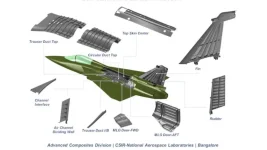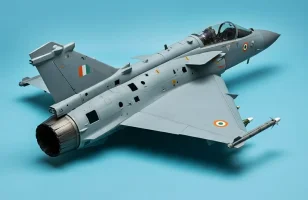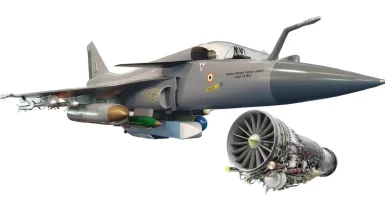- Views: 3K
- Replies: 22
The Light Combat Aircraft (LCA) Tejas, a flagship program of India's indigenous defence manufacturing capabilities, recently marked 24 years since its maiden flight on January 4, 2001.
While the platform represents a significant step towards self-reliance in defence technology, the program has faced criticism for its slow pace of development, production delays, and limited induction into the Indian Air Force (IAF) even after two decades.
Developed by the Aeronautical Development Agency (ADA) and manufactured by Hindustan Aeronautics Limited (HAL), the LCA Tejas was envisioned as a fourth-generation lightweight, multi-role combat aircraft to replace India's aging MiG-21 fighters. It was designed to strengthen India's defence manufacturing ecosystem and reduce reliance on foreign imports.
The first flight of the LCA prototype in 2001 was a moment of pride for India, marking a milestone in indigenous defence technology. The aircraft showcased advanced features such as composite airframes, fly-by-wire systems, and modern avionics.
However, despite the promising start, the program has been plagued by delays, bureaucratic hurdles, and technical challenges. Some of the key issues include:
- Extended Development Timeline: The LCA program, sanctioned in 1983, saw its first prototype fly only in 2001, with operational clearance achieved much later. This extended timeline has raised concerns about efficiency.
- Limited Inductions: The IAF has inducted only 40 Tejas Mk1 aircraft, a far cry from the numbers initially envisioned.
- Production Bottlenecks: HAL's production capacity has struggled to keep pace with demand, further delaying the program.
- Evolving Requirements: Rapid advancements in aviation technology and the IAF's evolving operational needs have necessitated constant upgrades, contributing to delays.
Looking ahead, the Tejas Mk2, a medium-weight fighter, and the AMCA (Advanced Medium Combat Aircraft) program are under development to meet future requirements. However, these programs must learn from the challenges faced by the Tejas Mk1 to ensure timely delivery and operational readiness.
While the LCA Tejas program has undoubtedly contributed to India's aerospace industry, its slow progress and limited output underscore systemic challenges in India's defence manufacturing sector.
Greater private sector involvement, streamlined bureaucratic processes, and a more agile approach to development are crucial for future indigenous defence programs to achieve their full potential.



